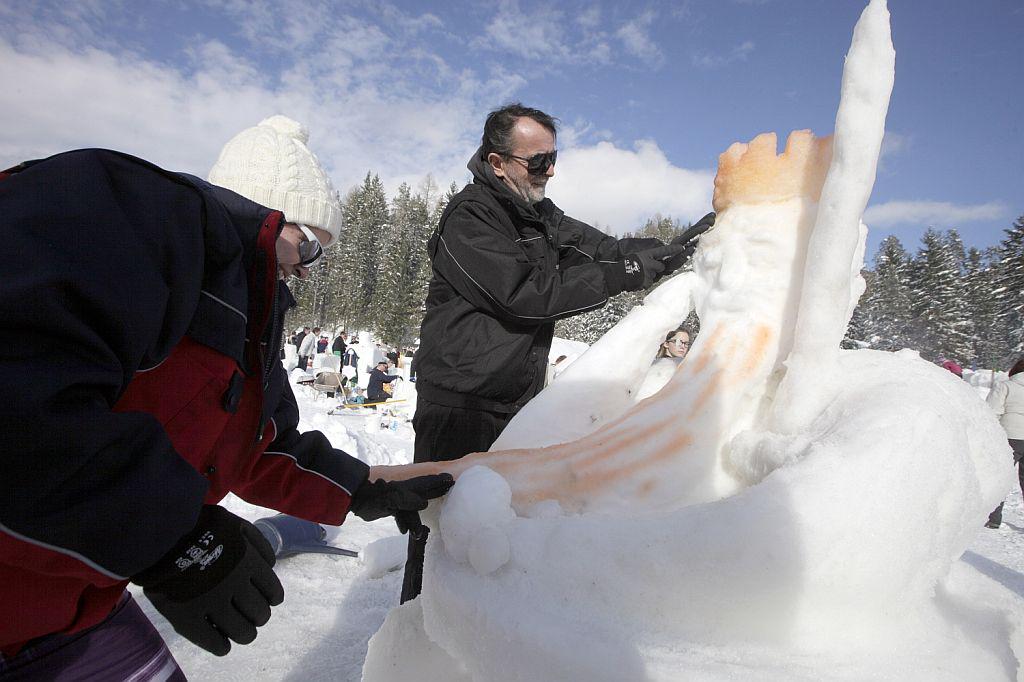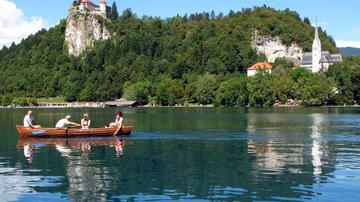
Slovenian Carinthia (Koroška), in the mountainous north of the country, is not just a place of unusually attractive scenery; it is also the legendary home of a sleeping king whose awakening will one day bring prosperity to the land.
According to the local legend, King Matjaž was a capable ruler who was popular among his subjects. Because of his popularity, rival rulers conspired against him. They sent their armies to crush Matjaž, but he was swallowed up by Peca, a nearby mountain. He fell asleep in the bowels of the mountain, where he remains to this day. The legend states that the king will one day reawaken, heralding a new era of prosperity and happiness for Slovenia. Before that happens, however, his beard will have to encircle his table in depth of the mountain seven times.
Other variations of the King Matjaž story exist elsewhere in Slovenia in the form of folk tales and poems. Some of them have him facing the wrath of advancing Turkish armies. In one well-known retelling, his wife is kidnapped by the Ottomans, and Matjaž saves her by attending the Sultan’s dance in disguise.
Some stories about the popular king probably date back to pre-Christian mythology. Other aspects are based on the life of Matthias Corvinus of Hungary, who was beloved by his subjects and also features prominently in Hungarian mythology.
Despite the multitude of stories about the good King Matjaž, his legend is most closely associated with Peca and the surrounding area. Today, his name lives not just in literature, but also in a number of events – from art shows to snow castle competitions – that commemorate the king who brought happiness to his subjects and whose reawakening will one day begin a new era of prosperity.



























































